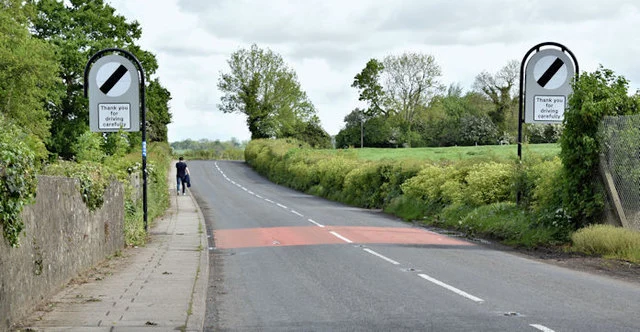
Extradition Law for Residents
October 16, 2024
Understanding Inheritance Law in the UK: A Comprehensive Overview
October 18, 2024In this blog, we have discussed why it’s important to follow the speed limits and what consequences could be faced if we failed to follow the UK speeding rules. The speed limits are imposed to ensure road safety and efficient traffic flow. Each driver must follow the given instructions exceeding the speed limits will pose safety risks as well as legal consequences.
The basic speed limit
In the UK speed is measured in miles per hour donated by (mph) the speed limits are indicated with the road signs.
- In build-up areas the speed limit is 30 mph or 48 km/h. In some residential zones, the speed is reduced to 20 mph or 32 km/h
- For cars and motorcycles on single-carriageways the speed limit is 60 mph or 96 km/h. For vans and trailers, the speed limit on single-carriageways is 50 mph.
- For cars and motorcycles on Dual-carriageways the speed limit is 70 mph or 112 km/h. For vehicles such as vans and towing trailers, the speed limit is reduced to 60 mph.
- For cars and motorcycles Motorways the speed limit is 70 mph or 112 km/h. For vehicles such as vans and towing trailers, the speed limit is reduced to 60 mph.
- Variable speed limits are imposed on certain motorways to handle certain conditions such as traffic flow and to reduce congestion. The speed limits are displayed on the electronic signs.
- Special speed limits are imposed on areas close to schools and hospitals, the limits are imposed to protect the safety of vulnerable pedestrians. The special speed limit is as low as 20 mph.
The mechanism for Enforcing speed limits
Different methods are used to enforce the speed limits
- Speed Cameras
There are three kinds of speed cameras used in UK fixed speed cameras, mobile speed cameras, and Average speed cameras.
- The fixed-speed cameras are usually installed in high incident-risk areas also referred to as incident hotspots. The program is installed in the camera which records the speed of the vehicles and captures the picture of the number plate of the vehicle which exceeds the speed.
- Mobile speed cameras are usually installed in police vehicles and on tripods they are operated by traffic police or through safety partnerships.
- Average speed cameras are usually placed on motorways which are programmed to calculate the average speed of a car from one point to another.
- Police Patrols
The second most effective method is police patrol, the police are equipped with radar guns to monitor the speed of the vehicles and can issue penalties on the spot. The police have the authority to stop drivers who appear to be speeding.
- Community Speed Watch
Local communities or volunteers could also participate in monitoring traffic. However, these volunteer groups did not have the authority to issue fines they could only report to the police authorities.
Read Also: Your Legal Responsibilities while Scrapping a Vehicle in the UK
Penalties for Speeding
Speeding is considered a serious offense; strict regulations are made to discourage drivers from conducting such acts.
- FPN (Fixed Penalty Notice)
A fixed penalty notice is served for minor speeding offenses, the FPN includes a 100-pound fine and 3 penalty points added to the driver’s license.
- Speed Awareness Course
The speed awareness course is offered to first-time offenders it’s an alternative to penalty points.
- Court Summons
Drivers can be summoned by the court for serious speeding offenses, the fine could range from 50% to 150% of the driver’s weekly income the fine is based on the severity of the offense. The 3 to 6 penalty points be added to the driver’s license.
- Maximum Fines
The maximum fine on the motorway is £2,500 and £1,000 on other roads.
For further advice please get in touch with our team today by calling 020 8538 0182 or +44 7857 809932, or you can email us on [email protected].
Please note these blogs are to enhance your knowledge and are not tailored advice, for specific advice please get in touch with our outstanding team.

